- Home
- Nathaniel Hawthorne
Scarlet Letter (Barnes & Noble Classics Series) Page 7
Scarlet Letter (Barnes & Noble Classics Series) Read online
Page 7
They were documents, in short, not official, but of a private nature, or, at least, written in his private capacity, and apparently with his own hand. I could account for their being included in the heap of CustomHouse lumber only by the fact, that Mr. Pue’s death had happened suddenly; and that these papers, which he probably kept in his official desk, had never come to the knowledge of his heirs, or were supposed to relate to the business of the revenue. On the transfer of the archives to Halifax, this package, proving to be of no public concern, was left behind, and had remained ever since unopened.
The ancient Surveyor—being little molested, I suppose, at that early day, with business pertaining to his office—seems to have devoted some of his many leisure hours to researches as a local antiquarian, and other inquisitions of a similar nature. These supplied material for petty activity to a mind that would otherwise have been eaten up with rust. A portion of his facts, by the by, did me good service in the preparation of the article entitled “MAIN STREET,” included in the present volume. 25 The remainder may perhaps be applied to purposes equally valuable, hereafter; or not impossibly may be worked up, so far as they go, into a regular history of Salem, should my veneration for the natal soil ever impel me to so pious a task. Meanwhile, they shall be at the command of any gentleman, inclined, and competent, to take the unprofitable labor off my hands. As a final disposition, I contemplate depositing them with the Essex Historical Society.26
But the object that most drew my attention, in the mysterious package, was a certain affair of fine red cloth, much worn and faded. There were traces about it of gold embroidery, which, however, was greatly frayed and defaced; so that none, or very little, of the glitter was left. It had been wrought, as was easy to perceive, with wonderful skill of needlework; and the stitch (as I am assured by ladies conversant with such mysteries) gives evidence of a now forgotten art, not to be recovered even by the process of picking out the threads. This rag of scarlet cloth,—for time, and wear, and a sacrilegious moth, had reduced it to little other than a rag,—on careful examination, assumed the shape of a letter. It was the capital letter A. By an accurate measurement, each limb proved to be precisely three inches and a quarter in length. It had been intended, there could be no doubt, as an ornamental article of dress; but how it was to be worn, or what rank, honor, and dignity, in by-past times, were signified by it, was a riddle which (so evanescent are the fashions of the world in these particulars) I saw little hope of solving. And yet it strangely interested me. My eyes fastened themselves upon the old scarlet letter, and would not be turned aside. Certainly, there was some deep meaning in it, most worthy of interpretation, and which, as it were, streamed forth from the mystic symbol, subtly communicating itself to my sensibilities, but evading the analysis of my mind.
While thus perplexed,—and cogitating, among other hypotheses, whether the letter might not have been one of those decorations which the white men used to contrive, in order to take the eyes of Indians,—I happened to place it on my breast. It seemed to me,—the reader may smile, but must not doubt my word,—it seemed to me, then, that I experienced a sensation not altogether physical, yet almost so, as of burning heat; and as if the letter were not of red cloth, but red-hot iron. I shuddered, and involuntarily let it fall upon the floor.
In the absorbing contemplation of the scarlet letter, I had hitherto neglected to examine a small roll of dingy paper, around which it had been twisted. This I now opened, and had the satisfaction to find, recorded by the old Surveyor’s pen, a reasonably complete explanation of the whole affair. There were several foolscap sheets, containing many particulars respecting the life and conversation of one Hester Prynne, who appeared to have been rather a noteworthy personage in the view of our ancestors. She had flourished during a period between the early days of Massachusetts and the close of the seventeenth century. Aged persons, alive in the time of Mr. Surveyor Pue, and from whose oral testimony he had made up his narrative, remembered her, in their youth, as a very old, but not decrepit woman, of a stately and solemn aspect. It had been her habit, from an almost immemorial date, to go about the country as a kind of voluntary nurse, and doing whatever miscellaneous good she might; taking upon herself, likewise, to give advice in all matters, especially those of the heart; by which means, as a person of such propensities inevitably must, she gained from many people the reverence due to an angel, but, I should imagine, was looked upon by others as an intruder and a nuisance. Prying farther into the manuscript, I found the record of other doings and sufferings of this singular woman, for most of which the reader is referred to the story entitled “The Scarlet Letter”; and it should be borne carefully in mind, that the main facts of that story are authorized and authenticated by the document of Mr. Surveyor Pue. The original papers, together with the scarlet letter itself,—a most curious relic,—are still in my possession, and shall be freely exhibited to whomsoever, induced by the great interest of the narrative, may desire a sight of them. I must not be understood as affirming, that, in the dressing up of the tale, and imagining the motives and modes of passion that influenced the characters who figure in it, I have invariably confined myself within the limits of the old Surveyor’s half a dozen sheets of foolscap. On the contrary, I have allowed myself, as to such points, nearly or altogether as much license as if the facts had been entirely of my own invention. What I contend for is the authenticity of the outline.
This incident recalled my mind, in some degree, to its old track. There seemed to be here the groundwork of a tale. It impressed me as if the ancient Surveyor, in his garb of a hundred years gone by, and wearing his immortal wig,—which was buried with him, but did not perish in the grave,—had met me in the deserted chamber of the Custom-House. In his port was the dignity of one who had borne his Majesty’s commission, and who was therefore illuminated by a ray of the splendor that shone so dazzlingly about the throne. How unlike, alas! The hang-dog look of a republican official, who, as the servant of the people, feels himself less than the least, and below the lowest, of his masters. With his own ghostly hand, the obscurely seen, but majestic, figure had imparted to me the scarlet symbol, and the little roll of explanatory manuscript. With his own ghostly voice, he had exhorted me, on the sacred consideration of my filial duty and reverence towards him,—who might reasonably regard himself as my official ancestor,—to bring his mouldy and moth-eaten lucubrations before the public. “Do this,” said the ghost of Mr. Surveyor Pue, emphatically nodding the head that looked so imposing within its memorable wig, “do this, and the profit shall be all your own! You will shortly need it; for it is not in your days as it was in mine, when a man’s office was a life-lease, and oftentimes an heirloom. But, I charge you, in this matter of old Mistress Prynne, give to your predecessor’s memory the credit which will be rightfully its due!” And I said to the ghost of Mr. Surveyor Pue,—“I will!”
On Hester Prynne’s story, therefore, I bestowed much thought. It was the subject of my meditations for many an hour, while pacing to and fro across my room, or traversing, with a hundredfold repetition, the long extent from the front-door of the Custom-House to the side-entrance, and back again. Great were the weariness and annoyance of the old Inspector and the Weighers and Gaugers, whose slumbers were disturbed by the unmercifully lengthened tramp of my passing and returning footsteps. Remembering their own former habits, they used to say that the Surveyor was walking the quarter-deck. They probably fancied that my sole object—and, indeed, the sole object for which a sane man could ever put himself into voluntary motion—was, to get an appetite for dinner. And to say the truth, an appetite, sharpened by the east-wind that generally blew along the passage, was the only valuable result of so much indefatigable exercise. So little adapted is the atmosphere of a Custom-House to the delicate harvest of fancy and sensibility, that, had I remained there through ten Presidencies yet to come, I doubt whether the tale of “The Scarlet Letter” would ever have been brought before the public eye. My imagination was a tarnished mi
rror. It would not reflect, or only with miserable dimness, the figures with which I did my best to people it. The characters of the narrative would not be warmed and rendered malleable, by any heat that I could kindle at my intellectual forge. They would take neither the glow of passion nor the tenderness of sentiment, but retained all the rigidity of dead corpses, and stared me in the face with a fixed and ghastly grin of contemptuous defiance. “What have you to do with us?” that expression seemed to say. “The little power you might once have possessed over the tribe of unrealities is gone! You have bartered it for a pittance of the public gold. Go, then, and earn your wages!” In short, the almost torpid creatures of my own fancy twitted me with imbecility, and not without fair occasion.
It was not merely during the three hours and a half which Uncle Sam claimed as his share of my daily life, that this wretched numbness held possession of me.27 It went with me on my sea-shore walks and rambles into the country, whenever—which was seldom and reluctantly—I bestirred myself to seek that invigorating charm of Nature, which used to give me such freshness and activity of thought, the moment that I stepped across the threshold of the Old Manse. The same torpor, as regarded the capacity for intellectual effort, accompanied me home, and weighed upon me in the chamber which I most absurdly termed my study. Nor did it quit me, when, late at night, I sat in the deserted parlour, lighted only by the glimmering coal-fire and the moon, striving to picture forth imaginary scenes, which, the next day, might flow out on the brightening page in many-hued description.
If the imaginative faculty refused to act at such an hour, it might well be deemed a hopeless case. Moonlight, in a familiar room, falling so white upon the carpet, and showing all its figures so distinctly,—making every object so minutely visible, yet so unlike a morning or noontide visibility,—is a medium the most suitable for a romance-writer to get acquainted with his illusive guests. There is the little domestic scenery of the well-known apartment; the chairs, with each its separate individuality; the centre-table, sustaining a work-basket, a volume or two, and an extinguished lamp; the sofa; the book-case; the picture on the wall;—all these details, so completely seen, are so spiritualized by the unusual light, that they seem to lose their actual substance, and become things of intellect. Nothing is too small or too trifling to undergo this change, and acquire dignity thereby. A child’s shoe; the doll, seated in her little wicker carriage; the hobby-horse;—whatever, in a word, has been used or played with, during the day, is now invested with a quality of strangeness and remoteness, though still almost as vividly present as by daylight. Thus, therefore, the floor of our familiar room has become a neutral territory, somewhere between the real world and fairy-land, where the Actual and the Imaginary may meet, and each imbue itself with the nature of the other. Ghosts might enter here, without affrighting us. It would be too much in keeping with the scene to excite surprise, were we to look about us and discover a form, beloved, but gone hence, now sitting quietly in a streak of this magic moonshine, with an aspect that would make us doubt whether it had returned from afar, or had never once stirred from our fireside.
The somewhat dim coal-fire has an essential influence in producing the effect which I would describe. It throws its unobtrusive tinge throughout the room, with a faint ruddiness upon the walls and ceiling, and a reflected gleam from the polish of the furniture. This warmer light mingles itself with the cold spirituality of the moonbeams, and communicates, as it were, a heart and sensibilities of human tenderness to the forms which fancy summons up. It converts them from snow-images into men and women. Glancing at the looking-glass, we behold—deep within its haunted verge—the smouldering glow of the half-extinguished anthracite, the white moonbeams on the floor, and a repetition of all the gleam and shadow of the picture, with one remove farther from the actual, and nearer to the imaginative. Then, at such an hour, and with this scene before him, if a man, sitting all alone, cannot dream strange things, and make them look like truth, he need never try to write romances.
But, for myself, during the whole of my Custom-House experience, moonlight and sunshine, and the glow of fire-light, were just alike in my regard; and neither of them was of one whit more avail than the twinkle of a tallow-candle. An entire class of susceptibilities, and a gift connected with them,—of no great richness or value, but the best I had,—was gone from me.
It is my belief, however, that, had I attempted a different order of composition, my faculties would not have been found so pointless and inefficacious. I might, for instance, have contented myself with writing out the narratives of a veteran ship-master, one of the Inspectors, whom I should be most ungrateful not to mention; since scarcely a day passed that he did not stir me to laughter and admiration by his marvellous gifts as a story-teller. Could I have preserved the picturesque force of his style, and the humorous coloring which nature taught him how to throw over his descriptions, the result, I honestly believe, would have been something new in literature. Or I might readily have found a more serious task. It was a folly, with the materiality of this daily life pressing so intrusively upon me, to attempt to fling myself back into another age; or to insist on creating the semblance of a world out of airy matter, when, at every moment, the impalpable beauty of my soap-bubble was broken by the rude contact of some actual circumstance. The wiser effort would have been, to diffuse thought and imagination through the opaque substance of to-day, and thus to make it a bright transparency; to spiritualize the burden that began to weigh so heavily; to seek, resolutely, the true and indestructible value that lay hidden in the petty and wearisome incidents, and ordinary characters, with which I was now conversant. The fault was mine. The page of life that was spread out before me seemed dull and commonplace, only because I had not fathomed its deeper import. A better book than I shall ever write was there; leaf after leaf presenting itself to me, just as it was written out by the reality of the flitting hour, and vanishing as fast as written, only because my brain wanted the insight and my hand the cunning to transcribe it. At some future day, it may be, I shall remember a few scattered fragments and broken paragraphs, and write them down, and find the letters turn to gold upon the page.
These perceptions have come too late. At the instant, I was only conscious that what would have been a pleasure once was now a hopeless toil. There was no occasion to make much moan about this state of affairs. I had ceased to be a writer of tolerably poor tales and essays, and had become a tolerably good Surveyor of the Customs. That was all. But, nevertheless, it is any thing but agreeable to be haunted by a suspicion that one’s intellect is dwindling away; or exhaling, without your consciousness, like ether out of a phial; so that, at every glance, you find a smaller and less volatile residuum. Of the fact, there could be no doubt; and, examining myself and others, I was led to conclusions in reference to the effect of public office on the character, not very favorable to the mode of life in question. In some other form, perhaps, I may hereafter develop these effects. Suffice it here to say, that a CustomHouse officer, of long continuance, can hardly be a very praiseworthy or respectable personage, for many reasons; one of them, the tenure by which he holds his situation, and another, the very nature of his business, which—though, I trust, an honest one—is of such a sort that he does not share in the united effort of mankind.
An effect—which I believe to be observable, more or less, in every individual who has occupied the position—is, that, while he leans on the mighty arm of the Republic, his own proper strength departs from him. He loses, in an extent proportioned to the weakness or force of his original nature, the capability of self-support. If he possess an unusual share of native energy, or the enervating magic of place do not operate too long upon him, his forfeited powers may be redeemable. The ejected officer—fortunate in the unkindly shove that sends him forth betimes, to struggle amid a struggling world—may return to himself, and become all that he has ever been. But this seldom happens. He usually keeps his ground just long enough for his own ruin, and is then thrust out,
with sinews all unstrung, to totter along the difficult footpath of life as he best may. Conscious of his own infirmity,—that his tempered steel and elasticity are lost,—he for ever afterwards looks wistfully about him in quest of support external to himself. His pervading and continual hope—a hallucination, which, in the face of all discouragement, and making light of impossibilities, haunts him while he lives, and, I fancy, like the convulsive throes of the cholera, torments him for a brief space after death—is, that, finally, and in no long time, by some happy coincidence of circumstances, he shall be restored to office. This faith, more than any thing else, steals the pith and availability out of whatever enterprise he may dream of undertaking. Why should he toil and moil, and be at so much trouble to pick himself up out of the mud, when, in a little while hence, the strong arm of his Uncle will raise and support him? Why should he work for his living here, or go to dig gold in California, when he is so soon to be made happy, at monthly intervals, with a little pile of glittering coin out of his Uncle’s pocket? It is sadly curious to observe how slight a taste of office suffices to infect a poor fellow with this singular disease. Uncle Sam’s gold—meaning no disrespect to the worthy old gentleman—has, in this respect, a quality of enchantment like that of the Devil’s wages. Whoever touches it should look well to himself, or he may find the bargain to go hard against him, involving, if not his soul, yet many of its better attributes; its sturdy force, its courage and constancy, its truth, its self-reliance, and all that gives the emphasis to manly character.

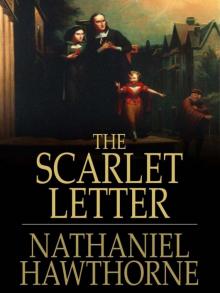 The Scarlet Letter
The Scarlet Letter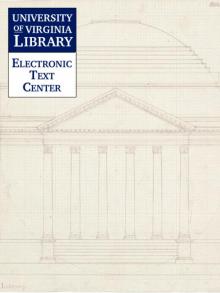 Young Goodman Brown : By Nathaniel Hawthorne - Illustrated
Young Goodman Brown : By Nathaniel Hawthorne - Illustrated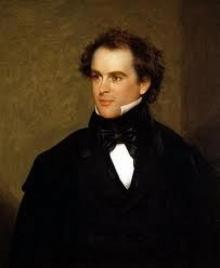 The Birthmark
The Birthmark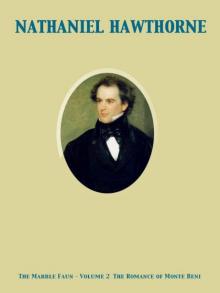 The Marble Faun; Or, The Romance of Monte Beni - Volume 1
The Marble Faun; Or, The Romance of Monte Beni - Volume 1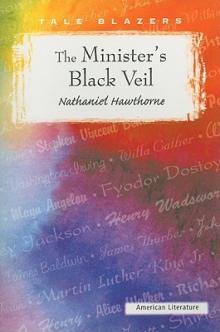 The Minister's Black Veil
The Minister's Black Veil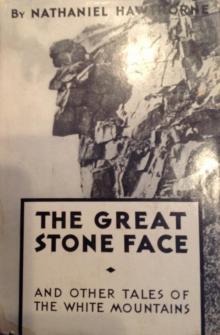 The Great Stone Face, and Other Tales of the White Mountains
The Great Stone Face, and Other Tales of the White Mountains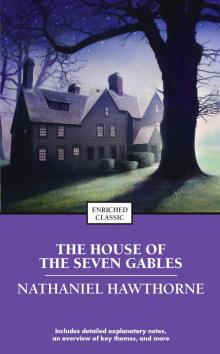 The House of the Seven Gables
The House of the Seven Gables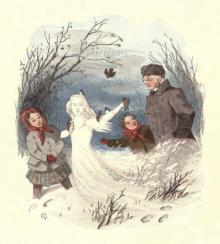 The Snow Image
The Snow Image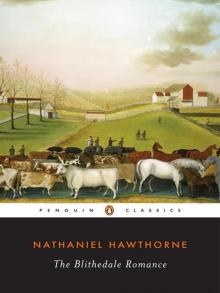 The Blithedale Romance
The Blithedale Romance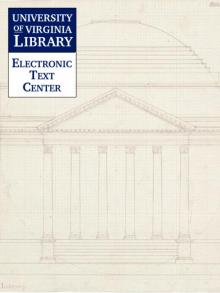 Rappaccini's Daughter: By Nathaniel Hawthorne - Illustrated
Rappaccini's Daughter: By Nathaniel Hawthorne - Illustrated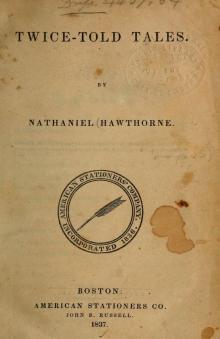 Twice-Told Tales
Twice-Told Tales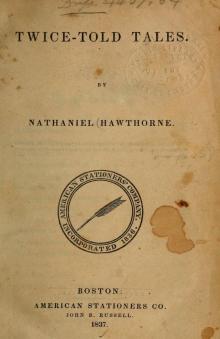 Twice Told Tales
Twice Told Tales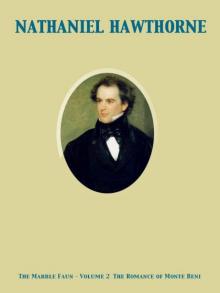 The Marble Faun; Or, The Romance of Monte Beni - Volume 2
The Marble Faun; Or, The Romance of Monte Beni - Volume 2_preview.jpg) Footprints on the Sea-Shore (From Twice Told Tales)
Footprints on the Sea-Shore (From Twice Told Tales)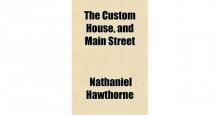 Main Street
Main Street_preview.jpg) The Seven Vagabonds (From Twice Told Tales)
The Seven Vagabonds (From Twice Told Tales) Fanshawe
Fanshawe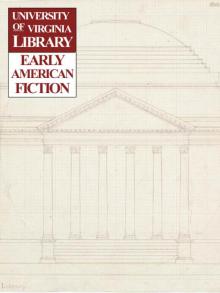 Chippings with a Chisel
Chippings with a Chisel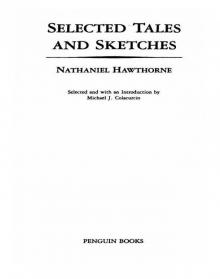 Selected Tales and Sketches
Selected Tales and Sketches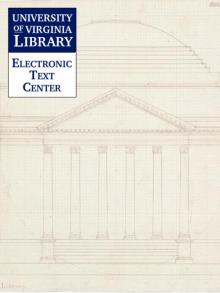 Young Goodman Brown
Young Goodman Brown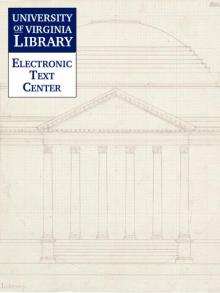 Roger Malvin's Burial
Roger Malvin's Burial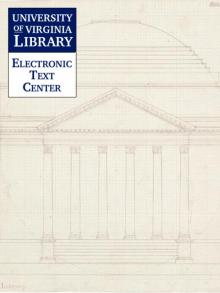 The Prophetic Pictures
The Prophetic Pictures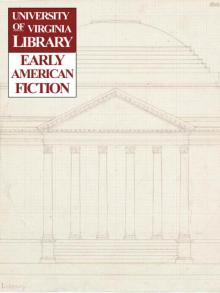 The Village Uncle
The Village Uncle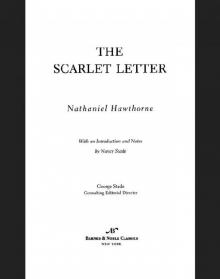 Scarlet Letter (Barnes & Noble Classics Series)
Scarlet Letter (Barnes & Noble Classics Series)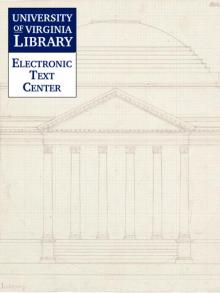 The Procession of Life
The Procession of Life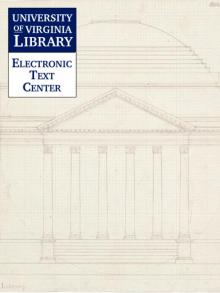 Drowne's Wooden Image
Drowne's Wooden Image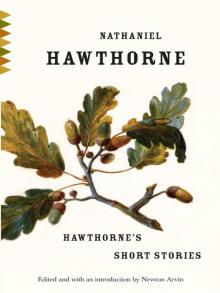 Hawthorne's Short Stories
Hawthorne's Short Stories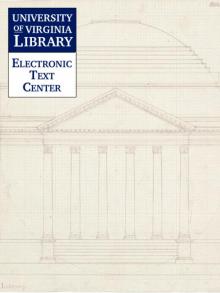 My Kinsman, Major Molineux
My Kinsman, Major Molineux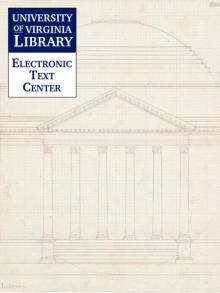 Legends of the Province House
Legends of the Province House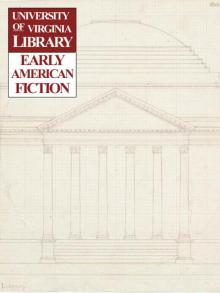 Foot-Prints on the Sea-Shore
Foot-Prints on the Sea-Shore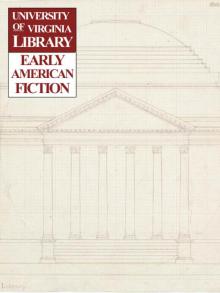 The Haunted Quack
The Haunted Quack Tanglewood Tales
Tanglewood Tales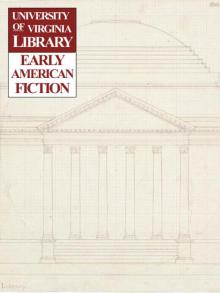 The Seven Vagabonds
The Seven Vagabonds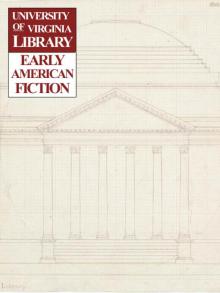 Mosses from an Old Manse, Volume 2
Mosses from an Old Manse, Volume 2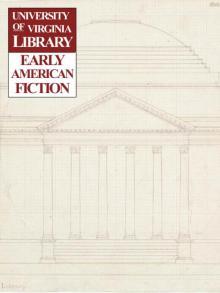 The Canterbury Pilgrims
The Canterbury Pilgrims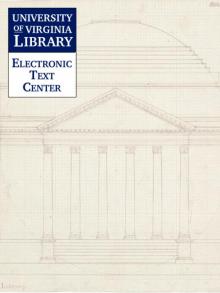 Wakefield
Wakefield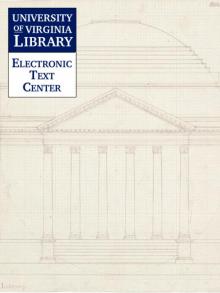 The Gray Champion
The Gray Champion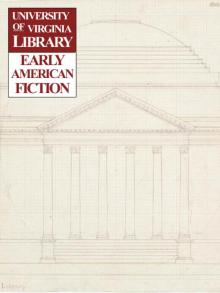 The White Old Maid
The White Old Maid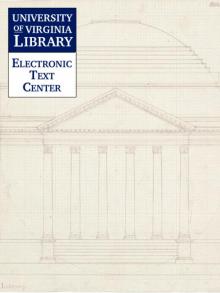 The Snow-Image: A Childish Miracle
The Snow-Image: A Childish Miracle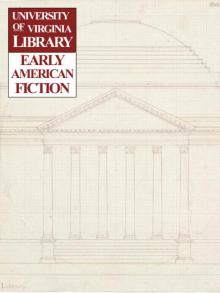 The Gentle Boy
The Gentle Boy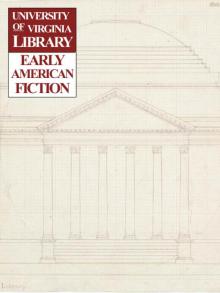 Mr. Higginbotham's Catastrophe
Mr. Higginbotham's Catastrophe![The Threefold Destiny: A Fairy Legend, by Ashley Allen Royce [pseud.] Read online](http://i1.bookreadfree.com/i2/04/10/the_threefold_destiny_a_fairy_legend_by_ashley_allen_royce_pseud__preview.jpg) The Threefold Destiny: A Fairy Legend, by Ashley Allen Royce [pseud.]
The Threefold Destiny: A Fairy Legend, by Ashley Allen Royce [pseud.]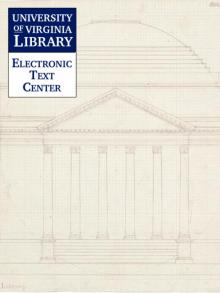 Lady Eleanore`s Mantle
Lady Eleanore`s Mantle The Great Carbuncle
The Great Carbuncle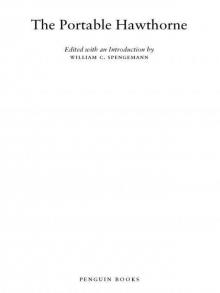 The Portable Hawthorne (Penguin Classics)
The Portable Hawthorne (Penguin Classics) True Stories from History and Biography
True Stories from History and Biography